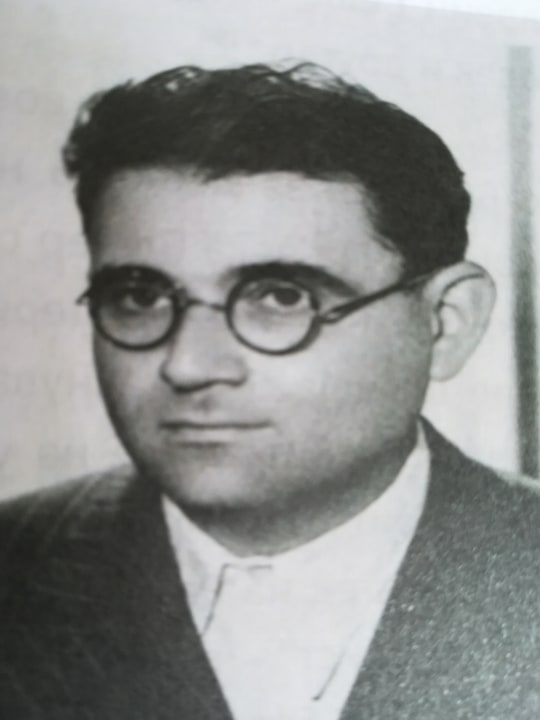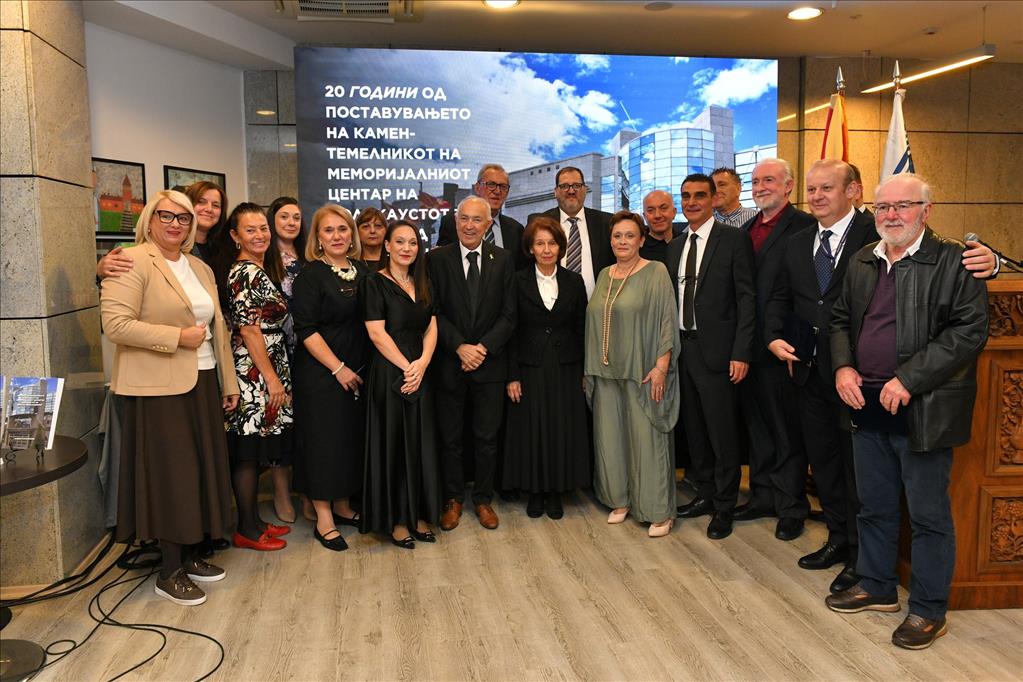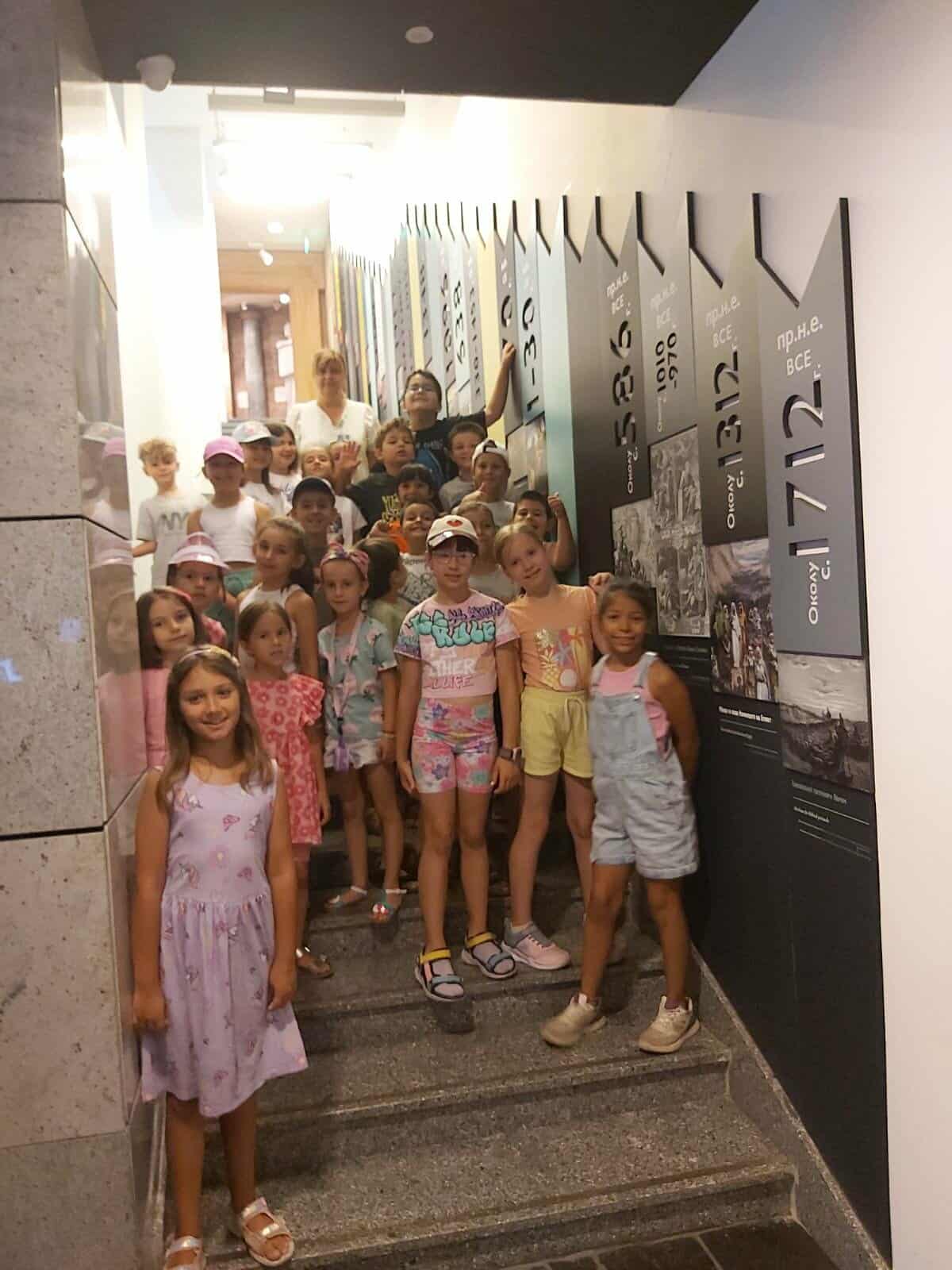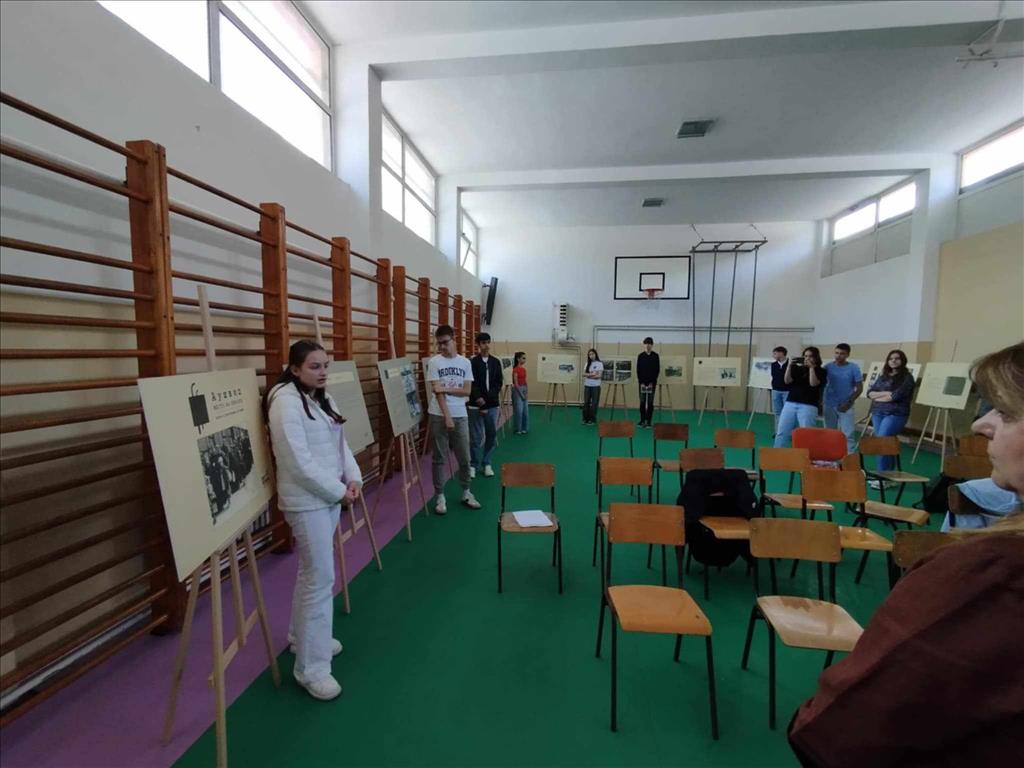ЃОРЃЕ БЛАЈЕР

Ѓорѓе Блајер е роден во Стара Пазова (Војводина, во тоа време дел од Австроунгарија) на 29 октомври 1908 година, како второ дете на Исидор и Аранка Блајер (моминско Адам). Неговиот постар брат Мирко бил стрелан во 1941 година во Јајинци (Белград). Јелена, сопругата на Мирко, и нивниот петгодишен син Иван биле убиени во усташкиот логор Јасеновац, а Аранка, мајката на Ѓорѓи, во Аушвиц во 1944 година. Помладиот брат Зоран бил депортиран со македонските Евреи и убиен во Треблинка во март 1943. Од околу 70 члена на поширокото семејство, Втората светска војна ја преживеале само Ѓорѓе и неговата братучетка Алиса Фројнд.
Во текот на Првата светска војна (1914-1918) Исидор, заедно со други мажи од тој крај, се криел на Фрушка Гора за да не биде регрутиран во австроунгарската војска. Аранка останала сама да ја води нивната бакалница додека Мирко и Ѓорѓе оделе во училиште. Пред крај на војната се родил Зоран, но по некоја година умрел Исидор и семејството се преселило во Нови Сад.
Во 1922 година, 14-годишниот Ѓорѓе и две години постариот Мирко заминале во Белград. По некоја година Ѓорѓе станал заботехничар, а Мирко електромеханичар. Наскоро се вклучиле во синдикалното движење и учествувале во штрајкови и демонстрации за подобрување на работничките права и работни услови. Поради тие активности, Ѓорѓе во 1927 година станал кандидат за член на Комунистичката партија, но влегол и во полициските досиеја како противник на режимот.
Блајер првпат дошол во Македонија на отслужување на воениот рок во Штип од 1929 до 1931 година. Поради политичката активност, властите му забраниле да живее во Белград и Нови Сад, па по партиска директива следната година се вратил во Штип и се вработил како заботехничар. Од Штип бил протеран во Валандово, па во Кичево, за во 1937 да стаса во Скопје, каде бил уапсен, осуден на шест месеци затвор и потоа протеран од Македонија, па преминал во Косово.
Таму бил примен за член на КПЈ во 1937 година. Во почетокот ги организирал активностите на партиската ќелија во село Штрпце, а во 1939 бил поставен за секретар на КПЈ во областа Неродим. Како „сомнителна личност“, постојано бил протеруван од место во место, но најдолго се задржал во Урошевац и Призрен, каде ја сретнал својата идна сопруга Јелена Хаџи Периќ, со која стапил во брак во февруари 1940.
Кон крајот на годината Ѓорѓе и Јелена дошле во Белград, каде веќе биле неговите браќа Мирко и Зоран, студент на агрономија. По бомбардирањето на Белград на 6 април 1941 и почетокот на германската окупација, биле воведени ригорозни антиеврејски закони. Во исто време, Комунистичката партија почнала со подготовките за востание и на своите членови им издала директива „Секој на своето борбено место!“. За Ѓорѓе тоа била Македонија и тој, заедно со сопругата и братот Зоран, со фалсификувани документи пристигнал во Скопје на 9 јуни 1941 година.
Тука тој отворил забна ординација и активно се вклучил во Народноослободителното движење. Неговата ординација и станот биле засолништа за неговите сопартијци и антифашисти, каде покрај здравствените услуги се пружала и поддршка за илегалците и партизаните. При една „провала“ на партиската организација, бугарската окупаторска полиција го уапсила на 23 септември 1942 година. Во текот на истрагата Блајер често ги менувал исказите, па во недостиг од цврсти докази на 13 ноември 1942 година бил осуден на „само“ пет години затвор.
За време на депортацијата на македонските Евреи, Блајер бил во Централниот затвор на скопското Кале (кога во јануари 1944 година затворот бил оштетен при сојузничкото бомбардирање на Скопје, затворениците биле префрлени во затворот во Идризово). Неговиот 25-годишен брат Зоран бил однесен во Монополот и потоа депортиран и погубен во нацистичкиот логор Треблинка. Заедно со него во рацијата била уапсена и одведена во Монополот и сопругата на Ѓорѓе, Јелена. Меѓутоа, кога врз основа на прецизните германски документи бугарските власти ја идентификувале како Србинка, таа била ослободена и веднаш пратена во интернација во Горна Џумаја (Бугарија ).
Во текот на робијата, Блајер ја водел затворската забна ординација преку која политичките затвореници одржувале врски со илегалците во градот и партизаните во околината. Така тој бил еден од организаторите на бегството на политичките затвореници од Идризово на 28 август 1944 година, меѓу кои и 19 млади бугарски Евреи-комунисти. Приклучувајќи се, заедно со сопругата Јелена, во редовите на 42-та Бригада на НОВ и ПОМ, Блајер ја организирал и станал управител на партизанската болница во Горно Врановци, Велешко, која била и првата воена болница на новата држава. По ослободувањето во ноември 1944, болницата преминала во Скопје и на нејзино чело Ѓорѓе останал уште две години, до неговата демобилизација во чин на капетан.
Во меѓувреме, на 26 декември 1945 година, Ѓорѓе Блајер бил избран за претседател на Македонско-еврејската верска општина. Веднаш биле воспоставени редовни, неопходни односи со новата државна власт, а заради поддршка во прифаќањето на преживеаните и повратниците Евреи во Скопје и во Македонија; враќање на сопственоста на општествените објекти на Еврејската верска општина (синагогата, Еврејскиот клуб, училиштето и гробиштата); за евидентирање на податоци за геноцидот над Евреите; посредување за транзит на повратниците Евреи за Грција и, преку Македонија, на иселениците од Европа за Израел.
Поради јавните критики на состојбите во земјата и спротиставувањето на југословенската државна политика во однос на Информбирото, Ѓорѓе Блајер во 1948 година бил исклучен од Комунистичката партија и од Сојузот на резервни воени старешини. Бидејќи не отстапувал од тие ставови, во октомври 1950 година бил притворен и по тримесечна истрага му била изречена „административна мерка“ (всушност казна), што до 3 јануари 1953 година ја издржувал на Голи Оток.
За тоа време починал неговиот 18-месечен син Мирко кого, како дете на „информбировец“, никој не се осмелувал да го лекува од воспаление на белите дробови. Две ипол години по враќањето на Ѓорѓе од Голи Оток, на 40-годишна возраст починала и неговата сопруга Јелена.
По враќањето од Голи Оток и неколкугодишна пауза, Ѓорѓи Блајер одново се вклучил во работата на Еврејската општина како нејзин секретар и претседател во повеќе мандати сè до смртта. Меѓу неговите најзначајни ангажмани беа преселувањето на старите еврејски гробишта од Водно во новиот комплекс во Бутел, обновата на општинската зграда по поплавата во ноември 1962 година и во организирањето на изградбата на сегашната зграда на Еврејската општина во Скопје.
Во меѓувреме, работел како наставник во Средното заботехничко училиште, шеф на Забната амбуланта Кисела Вода и шеф на Забоздравствениот сектор во „Реплек“.
Во 1958 година му била доделена „Партизанската споменица 1941“ и повторно бил примен во Комунистичката партија на Македонија.
Ѓорѓи Блајер почина на 19 март 1970 година.
Сподели: << Назад
Секоја помош од Ваша страна е повеќе од добредојдена.
Донирајте за да продолжиме со успешната работа и едукација




